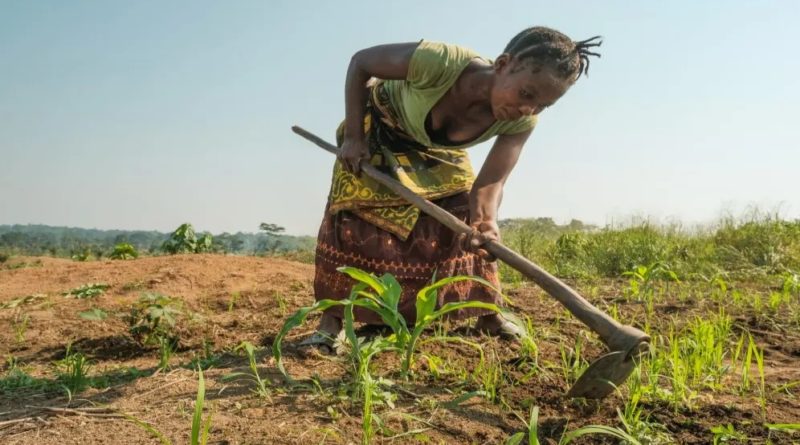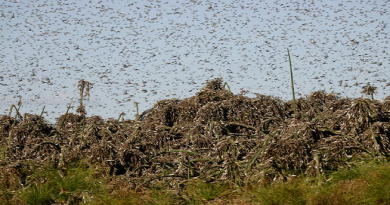Invest in research to save Africa’s agriculture
Main Photo: Copyright: Axel Fassio/CIFOR, CC BY-NC-ND 2.0
For food systems to work well in Africa, the entire food system from production, processing to marketing must be effective — but success hinges on smallholder farmers who are at the frontline, writes Gilbert Nakweya.
Agriculture in Sub-Saharan Africa was already getting a beating from shocks such as droughts, desert locusts and a growing population, and Covid-19 has only added to the pressure.
As I listened to proceedings at the 11th Annual Summit of the African Green Revolution Forum (AGRF) held in Kenya last week (6-10 September), I became more convinced that the global pandemic is hurting agricultural systems across the continent, and that urgent action is needed to mitigate the situation.
A report released last year by the UN’s High-Level Panel of Experts on Food Security and Nutrition says that measures taken to contain the spread of COVID-19 have had “profound implications for food security, nutrition and food systems”.
“Smallholder farming is the engine of agriculture in Africa. It must therefore be productive, profitable and caring about the environment.” Enock Chikava, Bill and Melinda Gates Foundation
It became clear to me that COVID-19 containment measures such as stay-at-home decrees, slowed down agricultural extension services, reduced household incomes against the rising cost of cultivation, led to unavailability of agricultural input materials and uncertainty about the marketing of the products, among others.
But how do we cushion agriculture in Africa against unforeseen crises such as COVID-19? How can the sector be revitalised and made resilient? These were some of the questions that came to my mind as I listened to various panellists and attendees of the AGRF summit.
During the summit, experts shared knowledge and ideas on how to create sustainable food systems in Sub-Saharan Africa amidst the shocks of climate change and burden of disease in the region.
The continent needs robust policy changes in agriculture to ensure that the sector becomes responsive to the population’s current food needs and to further the socioeconomic development of Africa through creation of jobs.
Speakers at the event were particularly concerned with how the region can find innovative solutions to increase agricultural production that can address the challenges of shrinking arable land caused by population growth and other shocks such as climate change and COVID-19.
For food systems to work well in Africa, the entire food system from production, processing to marketing must be effective — but success hinges on smallholder farmers who are at the frontline.
“Smallholder farming is the engine of agriculture in Africa. It must therefore be productive, profitable and caring about the environment,” said Enock Chikava, deputy director of the country systems transformation team at the Bill & Melinda Gates Foundation. “We need to talk about investments in agriculture because it’s economically viable and financially sound.”
He added that it was time to change tack from funding to investing in agriculture. And I couldn’t agree more. Such investments will make the sector fund itself without relying on external funding that may not be sustainable.
In one of the sessions I attended, Sugra Mahmood, a deputy director at the Federal Ministry of Agriculture and Rural Development in Nigeria, agreed that agriculture should pay for itself.
Mahmood explained that the sector “needs strategic intervention in terms of making the investment environment friendly by the provision of key elements required such as land tenure, extension system, and responsive research”.
The summit highlighted how food systems in Sub-Saharan Africa are lacking the attention needed to ensure that people can access food across the region.
I agree with the experts that agriculture should be highly prioritised through increased investments to rebuild resilient food systems. We need to build resilience around the challenges of agriculture in Africa, especially climate change and pests.
Ahead of the UN Food Systems Summit next week, it is critical that African governments and development partners clearly outline the need to address the continent’s food systems challenges with commitments to invest in research and strengthen local research organisations for home-grown innovations that support food systems and increase uptake at the grassroots level.
There has to be a paradigm shift if Africa hopes to wriggle itself out of the challenges facing the agriculture sector, including COVID-19, and build efficient and effective food systems with smallholder farmers at their centre.
Click the link for the original article: It was produced by SciDev.Net’s Sub-Saharan Africa English desk.



